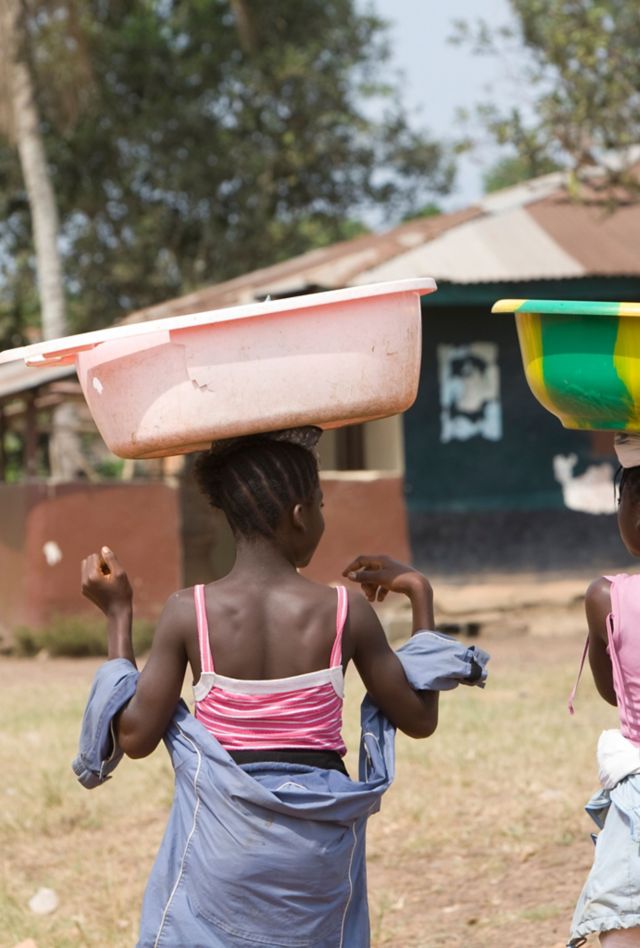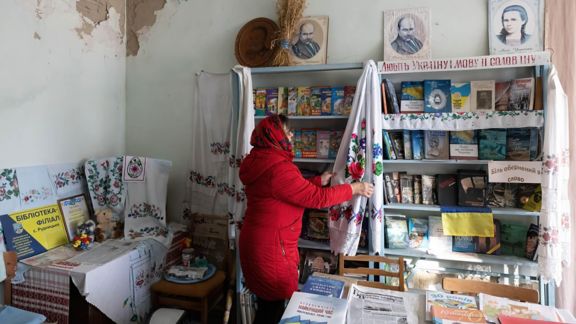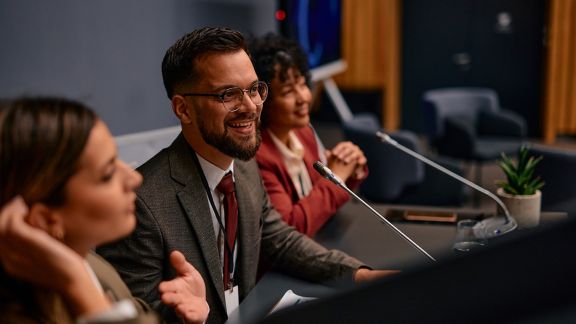Tackling Exploitative Child Domestic Work in West Africa

Problem
Child domestic work is pervasive in West Africa, but little is known about the living and working conditions of this hidden and highly vulnerable population.
Child domestic work takes many forms, ranging from kinship-based arrangements that provide educational opportunities to slavery-like conditions involving extreme abuse and exploitation. Despite the high prevalence of child domestic work in West Africa, little is known about the day-to-day living and working conditions of this hidden population. Furthermore, there is a dearth of evidence on what works in combating exploitative child domestic work in the region. To help fill these gaps, the U.S. Department of State Office to Monitor and Combat Trafficking in Persons (TIP) is investing in research and programming to reduce abuse and exploitation of child domestic workers (CDWs) in Nigeria and Liberia.
Solution
NORC used an intervention development research lens to produce evidence-informed intervention models.
With support from the U.S. Department of State, NORC is partnering with Freedom Fund to produce evidence-informed intervention models to reduce abuse and exploitation of CDWs. Using an intervention development research (IDR) lens, the project is being rolled out in three phases:
- Research-driven identification of intervention models to reduce harmful conditions among CDWs
- Implementation of evidence-based pilot interventions
- Evaluation of those interventions to produce replicable, adaptable, and scalable approaches for reducing child domestic servitude
In phase one, NORC conducted a comprehensive, mixed-methods assessment of child domestic work in Nigeria and Liberia. We started with a literature review to summarize existing evidence in the local contexts, key informant interviews with stakeholders, and focus group discussions with CDWs. We followed with general population surveys with 2,176 CDWs and 1,200 employers/caregivers across urban areas of Edo and Lagos states in Nigeria, and Montserrado and Nimba counties in Liberia.
NORC used local field researchers to refine data collection tools, trained local teams to implement trauma-informed best practices, and employed rigorous data quality assurance protocols and strategies. As a result, our assessment provides a representative snapshot of CDW characteristics and working conditions and their self-reported needs and priorities to inform intervention design and delivery.
The findings from our assessment informed phase two of the project, where Freedom Fund co-created intervention prototypes with six civil society organizations, which were piloted over 12 months between 2023 and 2024. At the end of the pilot period, we conducted a formative realist evaluation to explore how, for whom, and under what conditions these interventions contributed to outcomes outlined in the project’s overarching theory of change. The evaluation included a review of partner reports, monitoring data, and learning summaries, as well as over 50 key informant interviews and focus group discussions with CDWs, employers, caregivers, community members, religious leaders, law enforcement, government officials, and implementing partners.
Result
We found significant violations of labor laws and conventions, but also nuanced relationships between child domestic workers and their employers and caregivers.
NORC’s work contributed to evidence-informed recommendations to foster greater investment in reducing exploitative child domestic work in West Africa and beyond.
Our Phase 1 findings show that while many children benefit from kinship-based domestic work arrangements, a substantial portion face rights violations according to both local and international norms. More than 90 percent of CDWs in Nigeria and Liberia are in the worst forms of child labor, according to ILO conventions, and three out of four are working in violation of national laws. The data also reveal nuances in the relationship between CDWs and their employers/caregivers, as a large number have kinship relations aligning with the common regional practice of “child fostering.”
There is general convergence between surveyed employers/caregivers and CDWs that education and training are priority needs. Policymakers and civil society actors can work to address barriers of access to and full participation in education and expand opportunities for demand-driven, age-appropriate vocational skills training.
Our Phase 2 evaluation found that the pilot interventions successfully elevated the issue of exploitative child domestic work in Nigeria and Liberia through community dialogues, media campaigns, and engagement with trusted local institutions. Creative approaches like youth-led theater and documentary screenings, along with the reactivation of Child Welfare Committees, fostered trust and participation. Pilot activities also strengthened engagement with government stakeholders and formal protection systems, laying the groundwork for future system-level change. While the pilot was not designed to achieve long-term outcomes, it surfaced valuable lessons on implementation and documented good practices in community mobilization. Recommendations and lessons learned emphasize the importance of culturally sensitive messaging, integration with existing programs, and realistic planning for pilot scope and sustainability.







